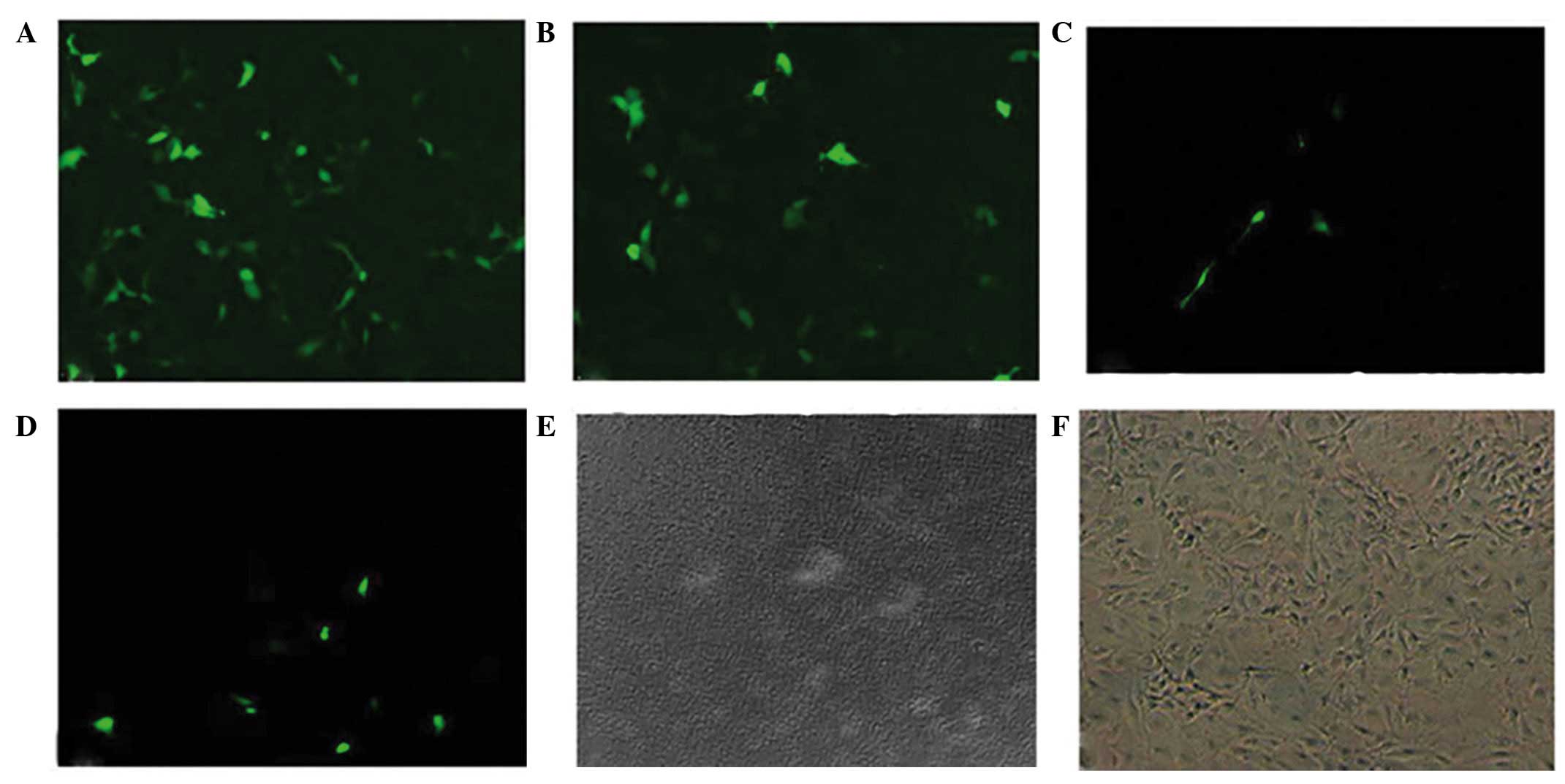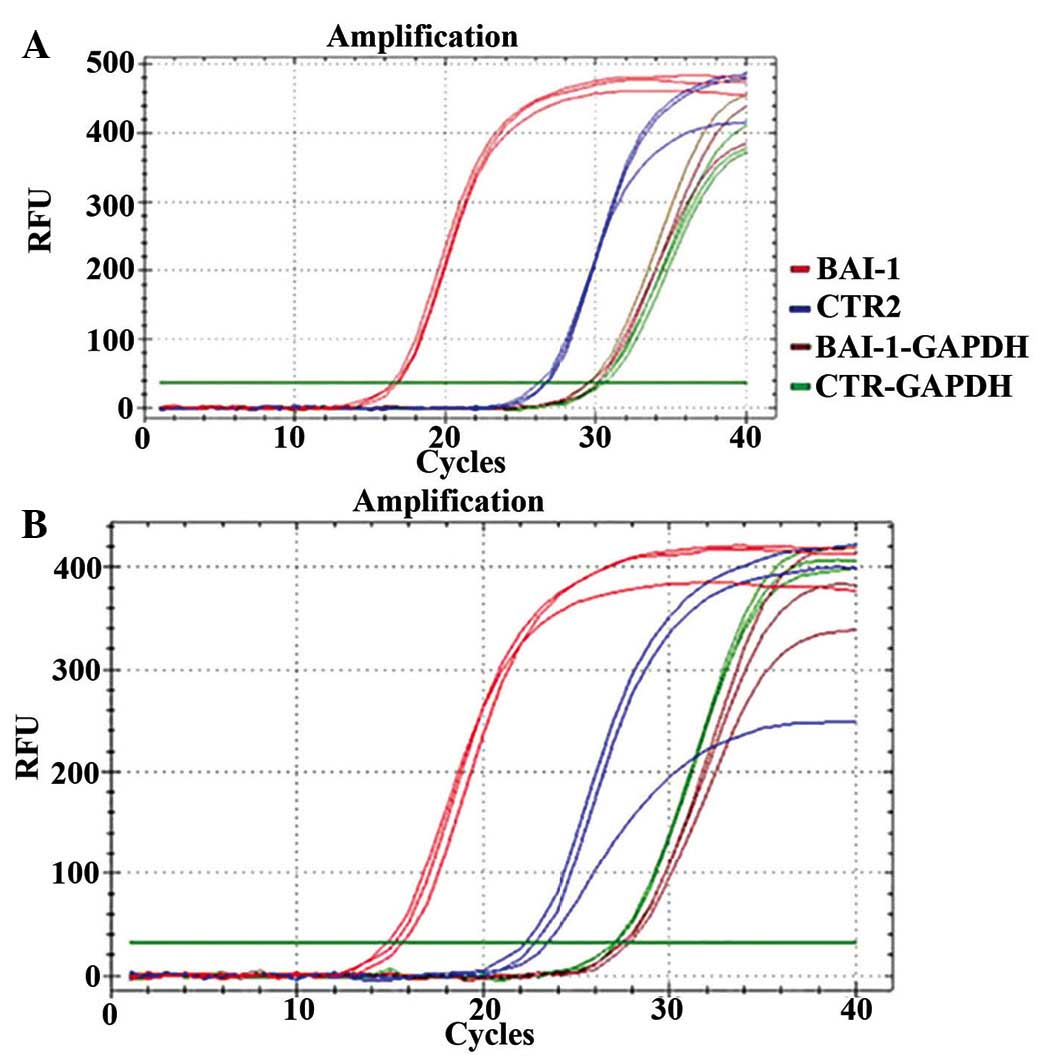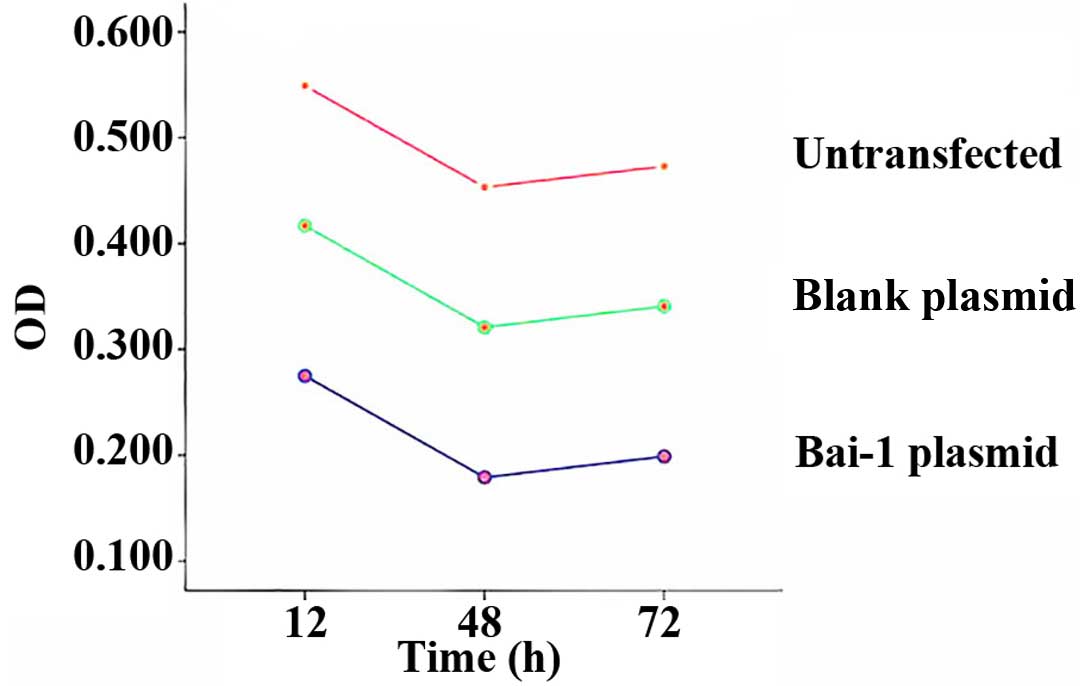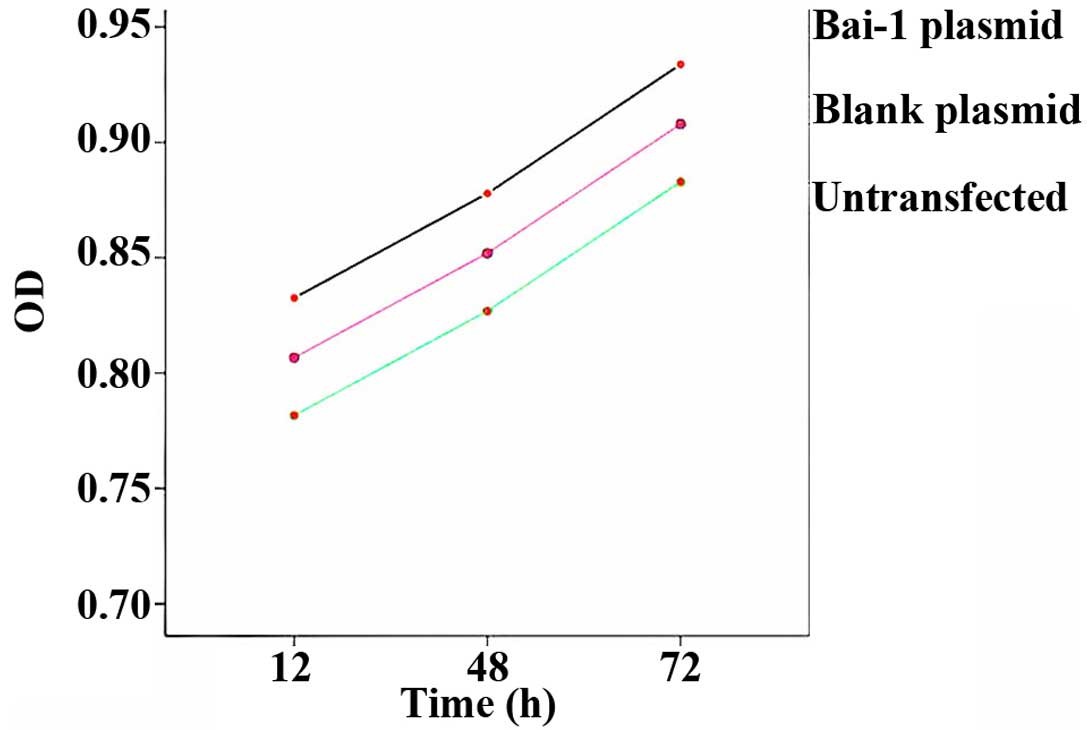|
1
|
Otto T, Krege S, Noll F and Rübben H:
Therapy of superficial bladder carcinomas. Urol Int. 63:32–39.
1999. View Article : Google Scholar : PubMed/NCBI
|
|
2
|
Rübben H, Lutzeyer W, Fischer N, Deutz F,
Lagrange W and Giani G: Natural history and treatment of low and
high risk superficial bladder tumors. J Urol. 139:283–285.
1988.PubMed/NCBI
|
|
3
|
Cordon-Cardo C: Molecular alterations
associated with bladder cancer initiation and progression. Scand J
Urol Nephrol Suppl. 218:154–165. 2008. View Article : Google Scholar : PubMed/NCBI
|
|
4
|
Reuter VE: The pathology of bladder
cancer. Urology. 67(3 Suppl 1): 11–17. 2006. View Article : Google Scholar : PubMed/NCBI
|
|
5
|
Sylvester RJ, van der MEIJDEN AP and Lamm
DL: Intravesical bacillus Calmette-Guerin reduces the risk of
progression in patients with superficial bladder cancer: A
meta-analysis of the published results of randomized clinical
trials. J Urol. 168:1964–1970. 2002. View Article : Google Scholar : PubMed/NCBI
|
|
6
|
Lamm DL, Blumenstein BA, Crissman JD,
Montie JE, Gottesman JE, Lowe BA, Sarosdy MF, Bohl RD, Grossman HB,
Beck TM, et al: Maintenance bacillus Calmette-Guerin immunotherapy
for recurrent TA, T1 and carcinoma in situ transitional cell
carcinoma of the bladder: A randomized southwest oncology group
study. J Urol. 163:1124–1129. 2000. View Article : Google Scholar : PubMed/NCBI
|
|
7
|
Davis JW, Sheth SI, Doviak MJ and
Schellhammer PF: Superficial bladder carcinoma treated with
bacillus Calmette-Guerin: Progression-free and disease specific
survival with minimum 10-year followup. J Urol. 167:494–500. 2002.
View Article : Google Scholar : PubMed/NCBI
|
|
8
|
McGavin MK, Badour K, Hardy LA, Kubiseski
TJ, Zhang J and Siminovitch KA: The intersectin 2 adaptor links
wiskott aldrich syndrome protein (WASp)-mediated actin
polymerization to T cell antigen receptor endocytosis. J Exp Med.
194:1777–1787. 2001. View Article : Google Scholar : PubMed/NCBI
|
|
9
|
Shaw RJ and Cantley LC: Ras, PI (3) K and
mTOR signalling controls tumour cell growth. Nature. 441:424–430.
2006. View Article : Google Scholar : PubMed/NCBI
|
|
10
|
Nishimori H, Shiratsuchi T, Urano T,
Kimura Y, Kiyono K, Tatsumi K, Yoshida S, Ono M, Kuwano M, Nakamura
Y and Tokino T: A novel brain-specific p53- target gene, BAI-1,
containing thrombospondin type 1 repeats inhibits experimental
angiogenesis. Oncogene. 15:2145–2150. 1997. View Article : Google Scholar : PubMed/NCBI
|
|
11
|
Fukushima Y, Oshika Y, Tsuchida T,
Tokunaga T, Hatanaka H, Kijima H, Yamazaki H, Ueyama Y, Tamaoki N
and Nakamura M: Brain-specific angiogenesis inhibitor 1 expression
is inversely correlated with vascularity and distant metastasis of
colorectal cancer. Int J Oncol. 13:967–970. 1998.PubMed/NCBI
|
|
12
|
Izutsu T, Konda R, Sugimura J, Iwasaki K
and Fujioka T: Brain-specific angiogenesis inhibitor 1 is a
putative factor for inhibition of neovascular formation in renal
cell carcinoma. J Urol. 185:2353–2358. 2011. View Article : Google Scholar : PubMed/NCBI
|
|
13
|
Shiratsuchi T, Futamura M, Oda K,
Nishimori H, Nakamura Y and Tokino T: Cloning and characterization
of BAI-associated protein 1: A PDZ domain-containing protein that
interacts with BAI1. Biochem Biophys Res Commun. 247:597–604. 1998.
View Article : Google Scholar : PubMed/NCBI
|
|
14
|
Kudo S, Konda R, Obara W, Kudo D, Tani K,
Nakamura Y and Fujioka T: Inhibition of tumor growth through
suppression of angiogenesis by brain-specific angiogenesis
inhibitor 1 gene transfer in murine renal cell carcinoma. Oncology
reports. 18:785–791. 2007.PubMed/NCBI
|
|
15
|
Livak KJ and Schmittgen TD: Analysis of
relative gene expression data using real-time quantitative PCR and
the 2(−Delta Delta C(T)) method. Methods. 25:402–408. 2001.
View Article : Google Scholar
|
|
16
|
Zendman AJ, Cornelissen IM, Weidle UH,
Ruiter DJ and van Muijen GN: TM7XN1, a novel human EGF-TM7-like
cDNA, detected with mRNA differential display using human melanoma
cell lines with different metastatic potential. FEBS Lett.
446:292–298. 1999. View Article : Google Scholar : PubMed/NCBI
|
|
17
|
Dawson DW, Pearce SF, Zhong R, Silverstein
RL, Frazier WA and Bouck NP: CD36 mediates the in vitro inhibitory
effects of thrombospondin-1 on endothelial cells. J Cell Biol.
138:707–717. 1997. View Article : Google Scholar : PubMed/NCBI
|
|
18
|
Dawson DW, Volpert OV, Pearce SF,
Schneider AJ, Silverstein RL, Henkin J and Bouck NP: Three distinct
D-amino acid substitutions confer potent antiangiogenic activity on
an inactive peptide derived from a thrombospondin-1 type 1 repeat.
Mol Pharmacol. 55:332–338. 1999.PubMed/NCBI
|
|
19
|
Dawson DW, Pearce SF, Zhong R, Silverstein
RL, Frazier WA and Bouck NP: CD36 mediates the in vitro inhibitory
effects of thrombospodin-1 on endothelial cell. J Cell Biol.
138:707–717. 1997. View Article : Google Scholar : PubMed/NCBI
|
|
20
|
Hatanaka H, Oshika Y, Abe Y, Yoshida Y,
Hashimoto T, Handa A, Kijima H, Yamazaki H, Inoue H, Ueyama Y and
Nakamura M: Vascularization is decreased in pulmonary
adenocarcinoma expressing brain-specific angiogenesis inhibitor 1
(BAI1). Int J Mol Med. 5:181–183. 2000.PubMed/NCBI
|
|
21
|
Yoon KC, Ahn KY, Lee JH, Chun BJ, Park SW,
Seo MS, Park YG and Kim KK: Lipid-mediated delivery of
brain-specific angiogenesis inhibitor 1 gene reduces corneal
neovascularization in an in vivo rabbit model. Gene Ther.
12:617–624. 2005. View Article : Google Scholar : PubMed/NCBI
|
|
22
|
Kaur B, Brat DJ, Devi NS and Van Meir EG:
Vasculostatin, a proteolytic fragment of brain angiogenesis
inhibitor 1, is an anti-angiogenic and antitumorigenic factor.
Oncogene. 24:3632–3642. 2005. View Article : Google Scholar : PubMed/NCBI
|
|
23
|
El Moustaine D, Granier S, Doumazane E,
Scholler P, Rahmeh R, Bron P, Mouillac B, Banères JL, Rondard P and
Pin JP: Distinct roles of metabotropic glutamate receptor
dimerization in agonist activation and G-protein coupling. Proc
Natl Acad Sci USA. 109:16342–16347. 2012. View Article : Google Scholar : PubMed/NCBI
|




















